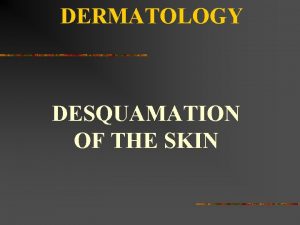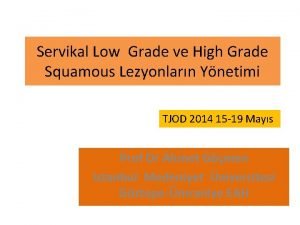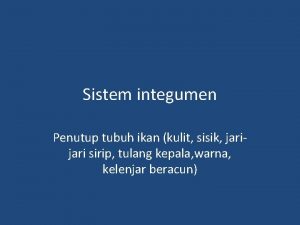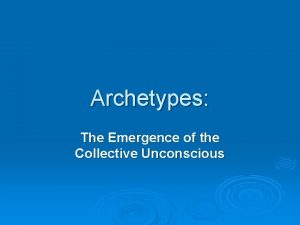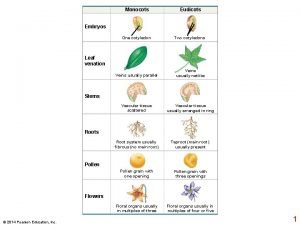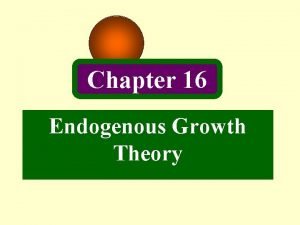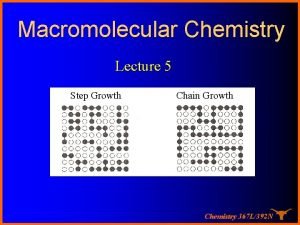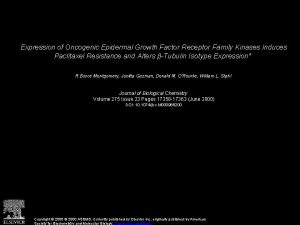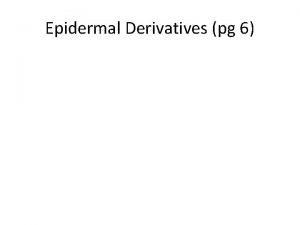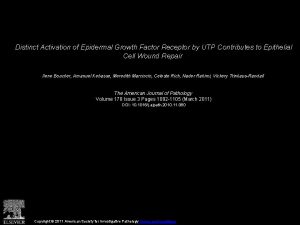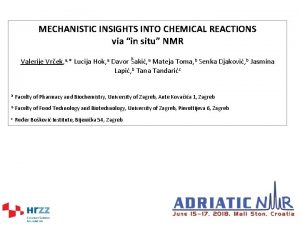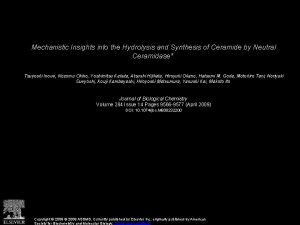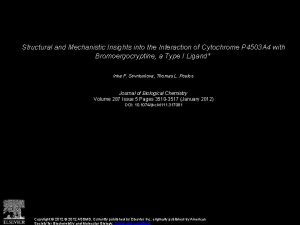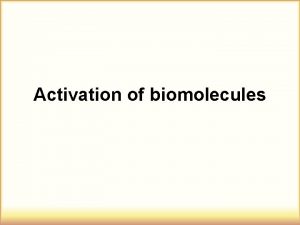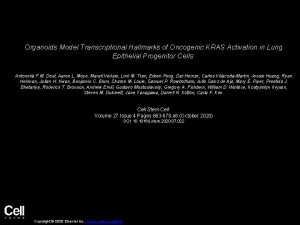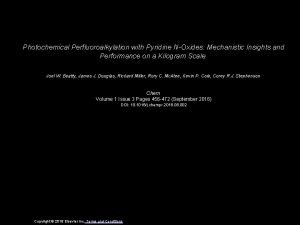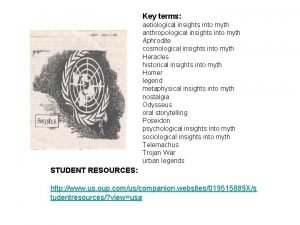Mechanistic Insights into Oncogenic Activation of Epidermal Growth














- Slides: 14

Mechanistic Insights into Oncogenic Activation of Epidermal Growth Factor Receptor (EGFR) mutants and its Clinical Implications Jeonghee Cho Samsung Genome Institute Samsung Medical Center

Outline 1. Mechanistic insight of cetuximab-based EGFR targeted therapy 2. Novel mechanism of RTK activation and clinical implication 3. Ongoing projects (preliminary data) - Integrated genomic approaches for studies of erlotinib-resistance mechanism - Novel drug target pipeline (proof of principle)

Cancer is a Complex Genetic Disease Current model of cancer development Somatic Alterations of the Genome Point Mutations Copy Number Alterations Chromosomal Rearrangements Epigenetic Modifications Infections Altered Function or Expression of Oncogenes/ Tumor Suppressor Genes Cancer Cell Phenotypes Uncontrolled proliferation Prolonged survival Immortalization Angiogenesis Invasion/Metastasis Hanahan and Weinberg, Cell (2000 & 2010)

Why Study Cancer Genomes? 1. Discover novel genes and pathways important for cancer development 2. Develop a natural classification scheme for human cancers 3. Identify targets for therapeutic intervention Example: Activating point mutations in EGFR kinase domain in a subset of NSCLC patients predicts sensitivity to EGFR kinase inhibition

EGFR mutations in Lung Cancer Exon 21 41% Exon 18 Exon 19 5% 48% Exon 20 6% EGFR kinase domain mutations Frequency of mutation by exon • Somatic EGFR mutations found in ~30% of East Asian lung adenocarcinomas, ~7 -10% of U. S. and European patients • Clustered in four areas o Nucleotide binding (P loop), G 719 o Exon 19 deletions o Exon 20 insertions (C-terminal to alpha helix) o Activation loop mutations (L 858) • Mutation status predictive of clinical response to gefitinib, erlotinib o Ex 19 deletions o L 858 R Paze et al. 2004 Science

Epidermal Growth Factor Receptor (EGFR) Transmembrane segment 1 645 669 979 706 Extracellular domain Kinase domain 1210 C-terminal tail P P P Juxtamembrane segment EGFR dimers and their ligands The EGFR pathway Okines, A. et al. Nat. Rev. Clin. Oncol. (2011)

EGFR mutations in Lung Cancer

Mutant EGFRs identified from Lung Cancers and Glioblastoma are oncogenic. Greulich H. et al. PLo. S Med (2005) Cho J. et al. Cancer Research (2011)

Anti-EGFR Targeted therapeutic approaches Tyrosine kinase inhibitors (TKIs) Gefitinib and erlotinib - Effective against mutant EGFR - Develop acquired resistance (T 790 M, MET amplification) HKI-272 and BIBW 2992 - EGFR and Erb. B 2 irreversible inhibitor - Effective against T 790 M mutant in vitro - Ongoing clinical trials with stage IIIB or IV NSCLC Monoclonal antibody Cetuximab (Erbitux) - human-mouse chimeric EGFR monoclonal antibody - Improve overall survival in clinical trial with chemotherapy in NSCLC (FLEX study) - EGFR characteristics that correlate with tumor sensitivity are not known. - Molecular mechanism of antitumor activity of cetuximab is not clear. (disruption of dimerization or/and ADCC and/or downregulation of EGFR)

C-terminal deletion mediated oncogenic activation of EGFR

GBM-derived CT deletion EGFR mutants are sensitive to cetuximab and erlotinib in vitro Cetuximab Cell Viability (% control) Tarceva Concentration (μM) Concentration (μg/ml)

Intracranial GBM mouse model LN 443 cells expressing CT Del 1, CT 1009, v. III and WT

Cetuximab prolonged survival of mouse harboring brain tumors induced by GBM-derived oncogenic EGFR mutants. Cho J. et al, Cancer Research (2011)

EGFR exon 25&26 deletion mutation identified by WGS in lung adenocarcinoma is oncogenic and sensitive to erlotinib Kyusam Choi and Jeonghee Cho Imielinski et al. (Cell, 2013)
 Activation tree and activation record
Activation tree and activation record Fimmta veikin
Fimmta veikin Epidermal tissue system
Epidermal tissue system Epidermal dysplasia verruciformis
Epidermal dysplasia verruciformis Sistem integumen ikan
Sistem integumen ikan Mentor pupil relationship archetype examples
Mentor pupil relationship archetype examples Nature vs mechanistic world archetype
Nature vs mechanistic world archetype Mechanistic approach to job design
Mechanistic approach to job design Haven vs wilderness archetype examples
Haven vs wilderness archetype examples Is l gore a mechanistic or an organic organization
Is l gore a mechanistic or an organic organization Haven vs wilderness
Haven vs wilderness Root hair structure
Root hair structure Neoclassical growth theory vs. endogenous growth theory
Neoclassical growth theory vs. endogenous growth theory Step growth polymerization vs chain growth
Step growth polymerization vs chain growth Organic growth vs inorganic growth
Organic growth vs inorganic growth

